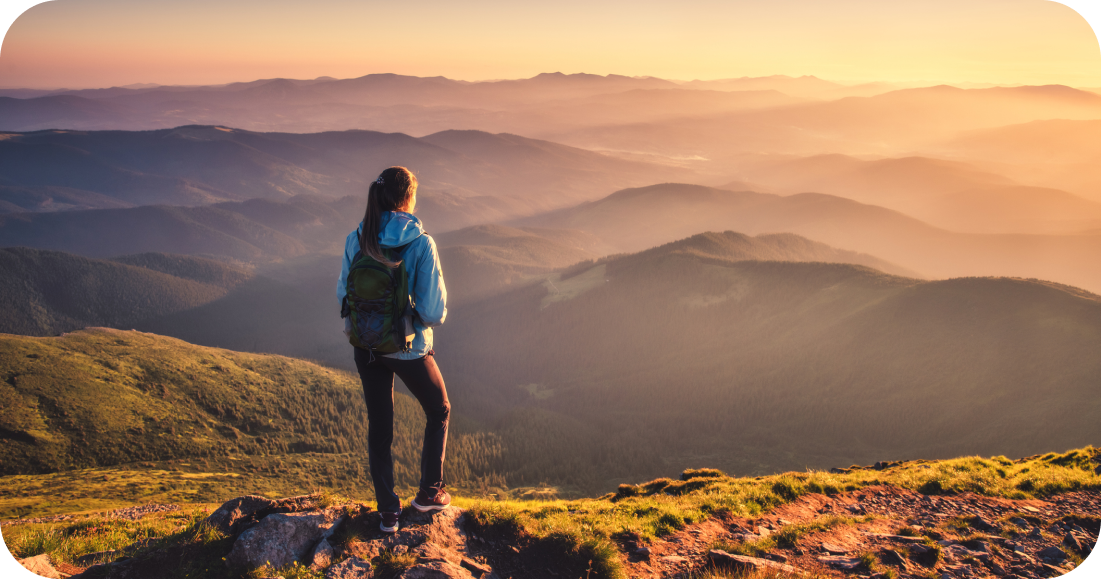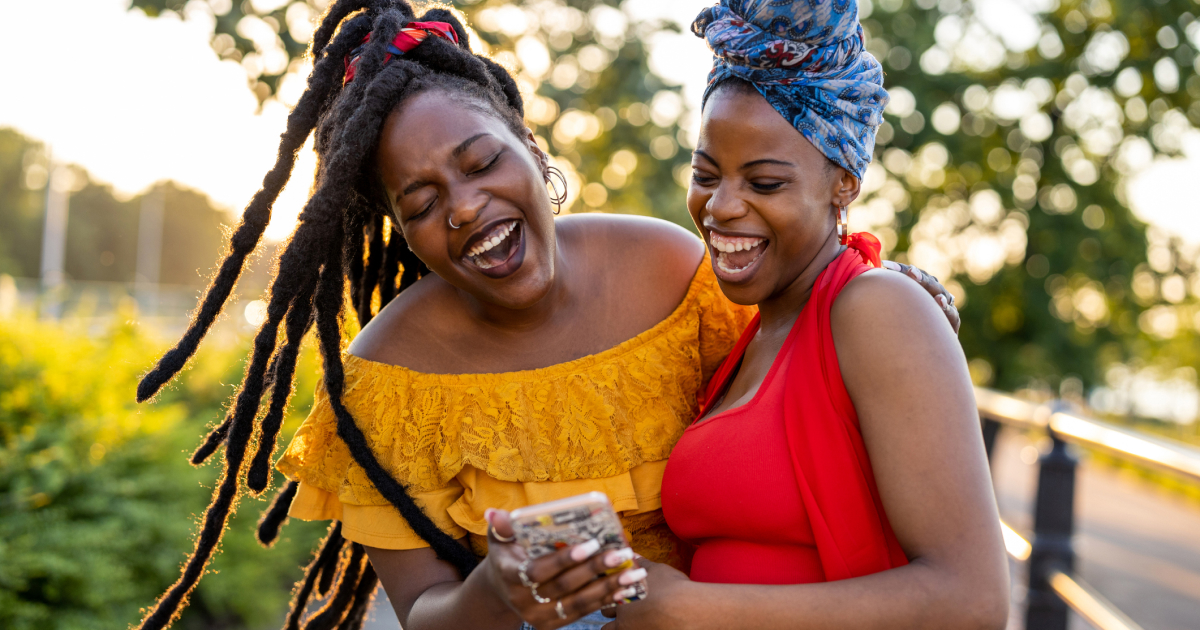#BlackJoy. #BlackBoyJoy. #BlackGirlMagic. You might have seen these hashtags before. Social media made them more mainstream. But Black joy goes further back than this.
It’s been a consistent thread in history. From the Diaspora to today’s Black Lives Matter movement. That’s because being united in joy is powerful. Powerful enough to drown out the voices of oppression that constantly play in the background. Subtly or bluntly. It’s a demonstration of resistance.
“There’s a level of safety with Black joy,” says Donay Butler, LMFT, a licensed therapist and AbleTo’s Manager of Clinical Program Development. “It’s healing, mentally and emotionally. Understanding one another on a deeper level helps us resist being pushed aside. It allows us to thrive in a society that believes skin color makes you less than.”
In the Black experience, joy and resistance exist in a beautiful tension. There’s acknowledgment of the past and present. Without being defined by it. The Black experience understands both the pain and beauty of what it means to be Black in America. In many ways, Black joy is form of self care.
“Self care is many things,” says Butler. “But for Black culture, it was, and continues to be, a means of survival. Historically, we’ve seen self care through community. Cooking and sharing meals with each other. Or even singing and dancing.”

Achieve your mental wellness goals
AbleTo programs give you 24/7 access to tools, activities, and content tailored to your needs. Sign up or log in to start exploring.

How to bring more Black joy into your life
Modern forms of Black joy vary. But they’re just as important in managing daily life stressors. Here are a few to cultivate.
1. Move to the rhythm
During slavery, dancing was a form of release. It was an art of expression. Dancing carried ancestral rhythms and movements. Over time, the dances evolved. But they continue to be at the center of Black culture.
During protests, crowds often break out in dances. It shows how Black joy (dance) and resistance (against injustice) exist in harmony.
But dance isn’t just a statement. A 2021 study found that dancing helped participants cope with stress-related health conditions. “Dancing has been shown to increase overall mental well-being by increasing endorphins,” says Butler. “With the increase of endorphins, comes the decrease of stress, anxiety, and depression-related symptoms.”
2. Embrace laughter
We’ve all had painful experiences. They transcend race, gender, and age. Luckily, so does a powerful antidote — laughter. During the pandemic, a viral Instagram post helped bring the modern Black Joy movement to the forefront.
It was a simple carousel of Black people laughing. While news feeds were filled with uncertainty, posts like these brought the community together under the umbrella of joy.
“Trauma is hard on our mind and bodies,” says Butler. “But when a person laughs, it triggers a natural bodily response that eases that pain. Throughout history, Black people used laughter to connect with others who’ve been through similar experiences.”
Studies show that laughter can improve depression, anxiety, and stress. It can be as simple as watching silly videos. Going to a comedy show. Or joining a laughter yoga group. (It’s a real thing!)
3. Be unapologetically you
For hundreds of years, America has tried to silence Black culture. They’ve tried to assimilate Black people with “shoulds.” You should dress like this. Talk like this. Raise your children like this. And so on. These “shoulds” are emphasized when it comes to Blackness.
Trying to constantly live up to society’s “shoulds” is exhausting. Plus, there’s not one right way to be Black.
That’s why being unapologetically Black — whatever that means to you — is a form of resistance. It’s proudly embracing everything that comes with the culture. It’s reclaiming the narrative around Blackness.
Self-expression. Living authentically. Owning who you are (without apologizing). These are powerful ways to define your own identity. It’s also just as important for your mental health.
“Authenticity is the key to being oneself,” emphasizes Butler. “Society has often painted this picture that continues to impact our mental health. But by accepting who you are, you’re free to be yourself. Without judgment.”
4. Find your joy
There isn’t a formula for finding what brings you joy. One day it’s a donut. Next week it’s shopping. Sometimes it’s just silence. It’s more about being aware. What does joy look like to you?
It might be helpful to create a list of moments that brought you joy in the past. Like cooking, painting, or hiking.
Butler adds, “Writing is an amazing way to keep track of ‘feel good’ moments. And the moments that were difficult.” Journaling allows you to do a “mental dump.” It helps clear the things standing in the way of experiencing joy. The Freewrite Journal in the AbleTo app can help you get started.
Make joy a lifestyle
Both Black and non-Black people can take part in the ongoing commitment to uplift the Black community. Here are a few ways to do that.
- Elevate Black voices in the workplace
- Educate yourself on the realities of being Black in America
- Shop at Black businesses. Online and in-person.
- Support Black artists. Attend concerts, art, and fashion shows.
- Advocate for equitable policies in your industry
- Connect with organizations making a difference
- Get involved in local government. Vote for policymakers and laws that drive change.
Celebrate Blackness through self care
To experience Black joy is to resist systems of oppression. Black joy doesn’t let centuries of unfair treatment have the final say. Black joy perseveres. Black joy overcomes. Black joy is self-expression. Black joy is self care.
Need some support?
AbleTo is here to help. From on-demand self care to virtual therapy and coaching, we make managing your mental wellness easy. Sign up and get the personalized support you deserve.
By Hawi Bekele Bengessa
Hawi Bekele Bengessa is Senior Content Designer at AbleTo. Starting out as a self-taught freelancer, Hawi has been a marketing copywriter for almost 10 years. She’s passionate about mental health and advocating on behalf of the unhoused.
Clinically reviewed by Hayley Quinn, PsyD.
Photo by PIKSEL/iStock. Individuals in photographs do not represent AbleTo participants.
The information featured on this site is general in nature. The site provides health information designed to complement your personal health management. It does not provide medical advice or health services and is not meant to replace professional advice or imply coverage of specific clinical services or products. The inclusion of links to other websites does not imply any endorsement of the material on such websites.


